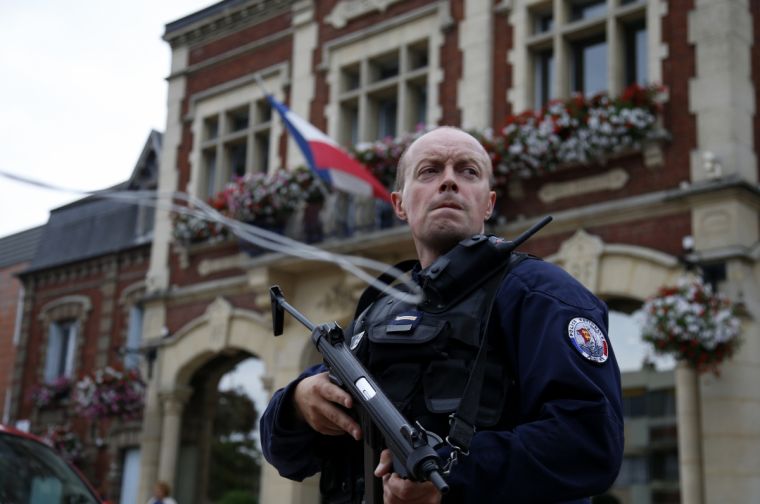Radical hospitality: Why we're called to love in the face of terror

Every day has brought with it a new story of terror – from the brutality and slaughter of the Nice attacks to the fatal shootings at random of nine people in Munich last weekend. Just today, a priest has been murdered in France. And on, and on, and on it goes.
But among these attacks, there seems to be a worrying pattern emerging when you look at the profiles of some – but definitely not all – of the perpetrators.
Yesterday we heard news that a young Syrian refugee blew himself up on Sunday, injuring 12 near a music festival in the southern German town of Ansbach. A few days before that in south-west Germany, a Syrian refugee armed with a machete killed a woman and injured two others. Just a week before that, a teenaged Afghan asylum-seeker injured four people after attacking them with an axe on a train in Wurzburg.
According to reports, Germany's Federal Criminal Police are following an increased number of leads on possible terrorists among asylum seekers in Germany, with a number of investigations having been launched.
Yesterday, Thomas de Maiziere, Germany's interior minister, warned against tarring all refugees with the same brush, despite these individual cases having been launched. A spokeswoman for Angela Merkel added: "Most of the terrorists who carried out attacks in recent months in Europe were not refugees."
But even if they were, we need to ask questions about why this is happening. Refugees are not intent on destroying our way of life. They have not moved to our European cities because they want to commit these acts of atrocity. A refugee is defined as a person who has been forced to leave their country to escape war, natural disaster or persecution. A refugee is a person desperately in need of our help.
The Syrian crisis has led to the most devastating human disaster of our time. Nearly 500,000 Syrians have died. Almost half the population – around 11 million – have had to leave their homes. There are five million people in camps in nearby countries. There are some 30,000 unaccompanied children living in camps in France and Kent.
As the Christian group For Refugees reminds us: "These broken people are not economic migrants chasing a better future. They are refugees from war – and would return to their homes if they could.
"Their only choice was to risk their lives by fleeing for safety and survival. Many left with only the clothes on their back and what they could carry."
When you hear the words "young Syrian refugee", you might be more likely to have negative thoughts about crime and terrorism than positive or empathetic ones about a people who are understandably broken by the things they have witnessed in their lives.
And sadly that's the fault of tabloid media that reduces whole groups of people into narrow stereotypes. But of course they are also responding to human nature. So often humans have neither the time nor the capacity nor the interest to understand the complexities of others' stories. We want to easily understand who the good guys are and who the bad guys are. Most often 'we' are the good ones and anyone who is not like us is seen as 'the other'; those we need to fear and protect ourselves from. And that is exactly why terrorist groups are able to thrive – recruiting those who feel ostracised and isolated, judged and discriminated against.
But what must our response be as Christians to these perilous times? As hard as it may seem, our role here must not be to point the blame at whole groups of people. We can't fall for the lies, even when not doing so goes against public discourse. Our role is always to love. Even in the face of a press that tells a single story, even when we want revenge, even when it hurts more than we can bear, even we're terrified.
In the Sermon on the Mount, Jesus speaks of a world turned upside down in which we as Christ-followers are called not to live in the carnal but in the light of the way made possible through his incarnation, death and resurrection. We live in the now-and-the-not yet; the not-yet being the kingdom of God that is yet to come. That place is one of a love that makes no sense – a love that costs. That place is one of radical hospitality, of arms-wide-open welcome. Even if refugees were to blame for all acts of terror – which they are not – our response is to love anyway. To love, no matter what.
Maybe if we loved in this way, our societies might become places in which those broken by hatred and death and violence might be restored rather than ostracised even further and driven towards these unimaginable acts of brutality.
Chine McDonald is director of communications at the Evangelical Alliance. Follow her on Twitter.











